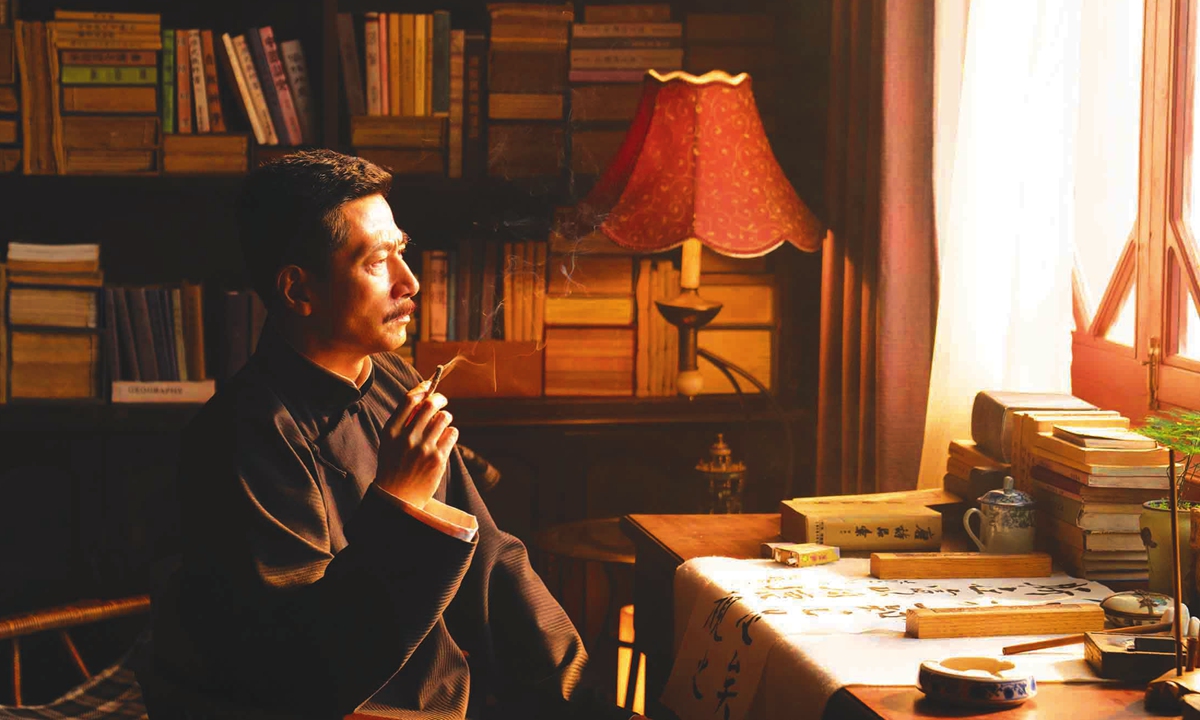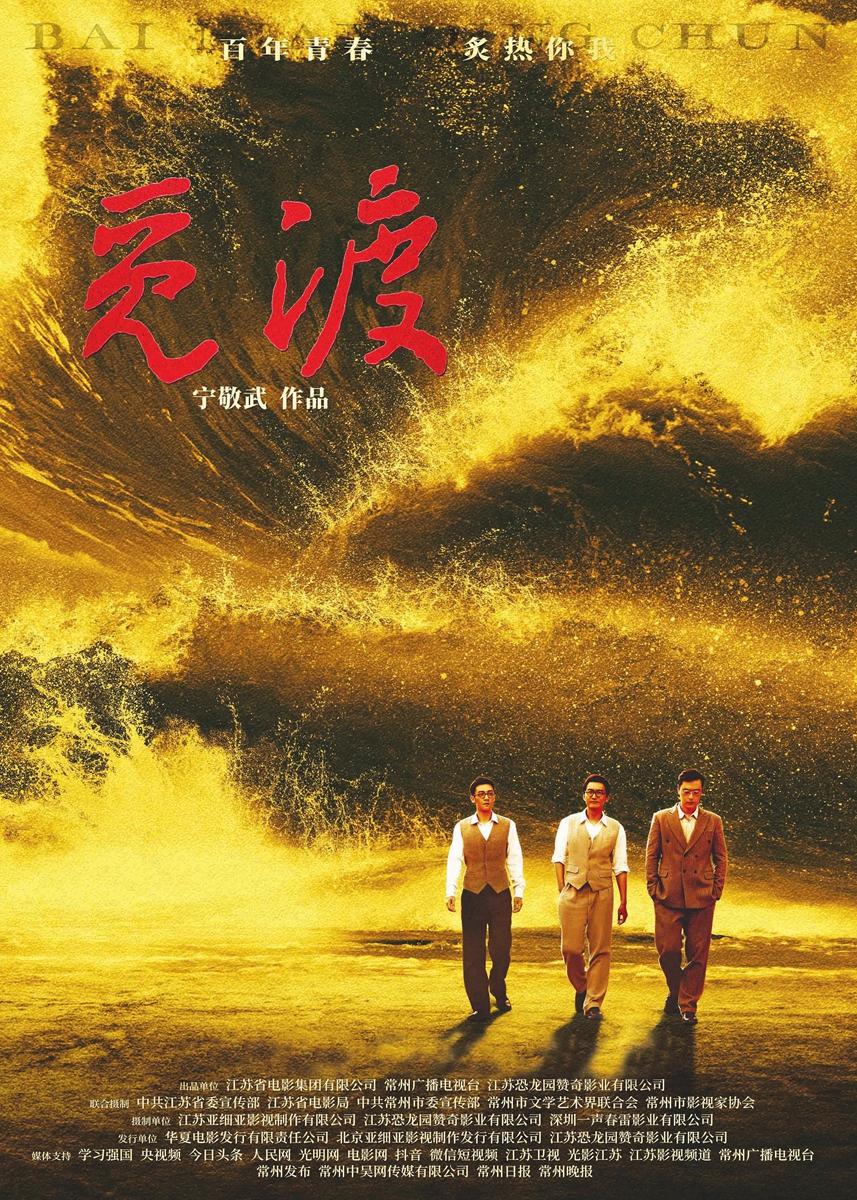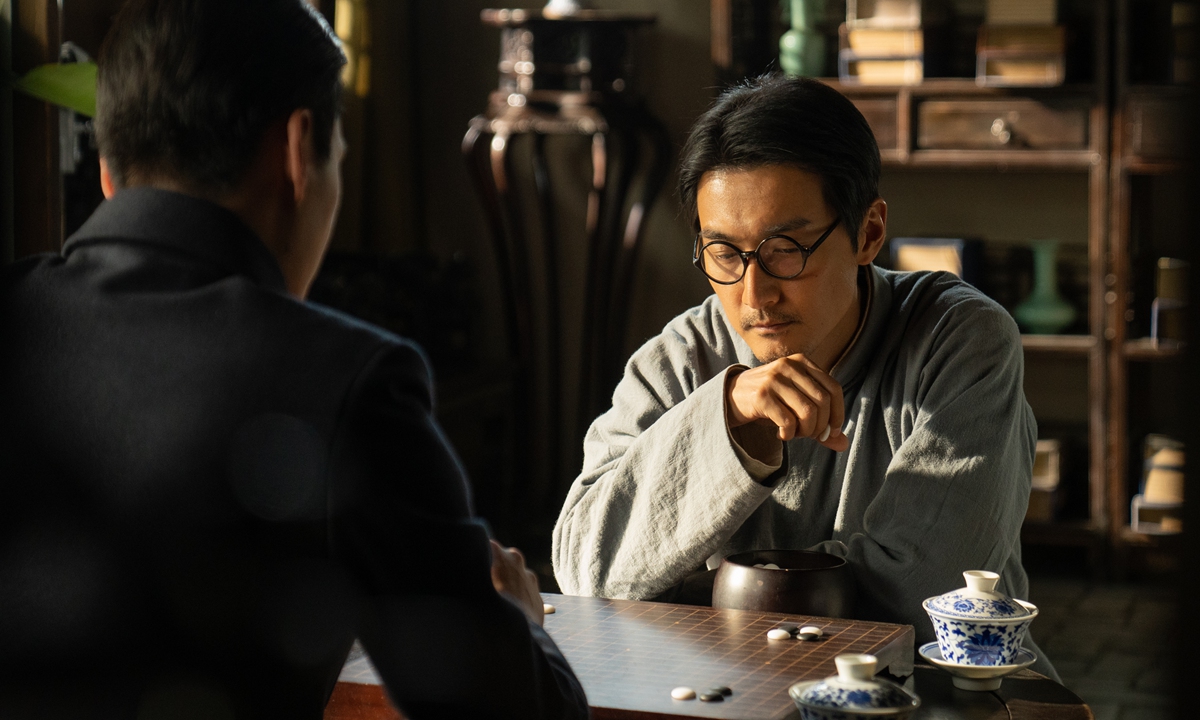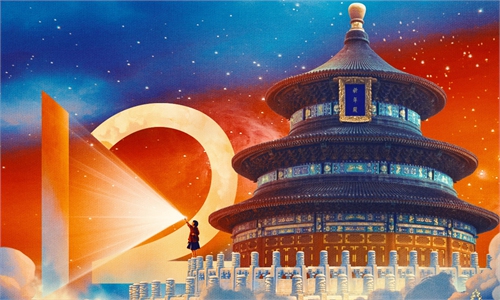
Promotional material for Pathfinders Photo: Courtesy of Ning Jingwu
The film Pathfinders commenced shooting a year ago on the anniversary when Qu Qiubai, an early Communist Party of China (CPC) leader and a revolutionary hero, was executed by soldiers of the Kuomintang in Changting, East China's Fujian Province. Promotional material for Pathfinders Photo: Courtesy of Ning Jingwu Promotional material for Pathfinders Photo: Courtesy of Ning Jingwu
"Each day of filming was like a countdown to his death. In the lead-up to when Qu would be executed, my heart felt like it would shatter... I wondered why we weren't able to save him at the time?" Chinese director Ning Jingwu recounted his experience while on set during a promotion tour of the film Pathfinders being screened at Chinese theaters since August 28.
"Qu said, 'sometimes, death is another way of life.'"
Pathfinders portrays the lives of three outstanding young revolutionaries - Qu Qiubai, Zhang Tailai and Yun Daiying - who sacrificed themselves for their revolutionary beliefs 100 years ago.
Ning told the Global Times that Qu is one of his favorite Chinese litterateurs and he hopes to present the intellectual cultivation of that generation through the film.

Ning said that the three revolutionaries shared commonalities. They were all influential young intellectuals from Changzhou, East China's Jiangsu Province who were proficient in foreign languages. Moreover, they shared a same belief dedicated to saving the country and its people, and were all sacrificed at a young age for their belief.
Zhang graduated from the law department of Peiyang University (today's Tianjin University) before becoming a liaison officer for the Communist International, or Comintern, and the CPC, and was later killed for leading the Guangzhou Uprising at the age of 29.
Qu Qiubai embarked on a revolutionary path after studying Russian and going on a fact-finding mission in the Soviet Union. He was arrested and executed by the KMT party at the age of 36.
Yun Daiying, on the other hand, explored the path to communism by establishing mutual aid societies and independent cooperative communities. He was a leader of the Communist Youth League of China and the chief editor of the periodical China Youth from 1925 to 1927. In 1931, he was executed by the KMT party at the age of 36.
Ning said that while the paths taken by the three revolutionaries varied, their ideological journeys displayed significant similarities - they exhaustively sought a better path for China and independently chose communism as a way to save the nation.
As the historical dramas like The Awakening Age have gained popularity, audiences' expectations for similar works have significantly increased. The actors portraying the three heroes - Song Yang, a veteran in the film industry; Zhang Tong, with extensive experience from numerous TV dramas including his impressive performance in The Awakening Age while portraying Chinese intellectual and revolutionary Li Dazhao; and Gu Jiacheng whose great-grandmother was the cousin to Yun Daiying - were carefully selected.
Apart from the carefully chosen cast, the production crew of Pathfinders was also star-studded. Experts from the industry, such as audio director Gu Changning from Chinese director Zhang Yimou's Red Sorghum and styling director Xu Guangrui from Chen Kaige's Farewell My Concubine, were invited to join the production.
Moreover, every detail of the film was meticulously crafted while remaining understated and seemingly casual, like the placement of rattan tables and bamboo baskets, all handcrafted by inheritors of intangible cultural heritage.
Ning said he hoped these details would help moviegoers to better understand the historical story.

Strong sense of empathy
Ning stated that the screenplay underwent a painstaking three-year process of development to eventual fruition, with dozens of drafts capturing historical nuances. The director aimed to convey the complexities of that era's intellectual language, which was influenced by the Republican period and reflected in Qu's poetic verses.
The film's memorable lines, such as "Sometimes, death is another way of life," have deeply touched young viewers. Part of such an impact is the fact that similar beliefs between friends could save them from any hardship.
The director mentioned that they received significant assistance in the form of authentic historical materials from the relatives of the three heroes during the creative process.
"More than two-thirds of the plot and details in Pathfinders are making their debut in a film, and the fresh and vibrant storylines and details constitute the originality and vitality of the film," Ning said, adding that this compels the creators of the film to enter the three heroes' passionate inner world with a sympathetic heart, "to understand their pain and hope, their confusion and choices, and their perseverance and sacrifice."
According to Ning, moments in which the historical figures experienced emotional upheavals have also deeply resonated with Chinese moviegoers who also encounter periods of trouble such as business failures, romantic heartbreaks, and layoffs.
Chinese actor Song Yang who played the role of Qu mentioned he felt that "Qu was not an infallible hero or an indestructible steel-like figure, but a living, vivid, passionate yet vulnerable real person" when doing research of the historical celebrity.
A hundred years ago, three young men left their hometowns and embarked on a journey to find a path to build a better China, becoming outstanding early leaders of the CPC Party. A hundred years later, in this city, the film Pathfinders was made. "More people will see these eternal youths, and this also as a form of spiritual inheritance," Ning said.




